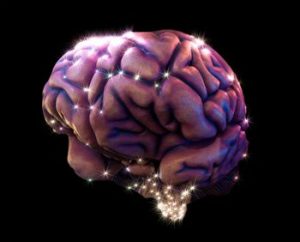
The Hidden Benefits of Exercise
We focus a lot on the self-image benefits of exercise – looking better both in and out of our clothes, but exercise has many hidden benefits you likely weren’t even aware of. It can reduce stress, combat depression, make us happier, stave off dementia and keep us younger. It does this by producing a number of chemicals in our brains, heightened levels of which are the direct result of exercise.
Endorphins

Most of us know that exercise produces endorphins, but what exactly are they, and what do they do, beyond giving us an ‘exercise high’? Endorphins are a class of chemicals known as neurotransmitters. They transmit electrical signals in our brain and nervous system and are responsible for suppressing pain when we are injured. Have you noticed how an injury often hurts a lot less anywhere from a few seconds to a minute or so after it happens? This is due to the release of endorphins, which bind with the opiate receptors in our brain. It also explains why an injury may start to really throb after an hour or so. The endorphins wore off.
We literally get high from exercise! Endorphins bind with our opiate receptors and suppress pain while giving us a sense of euphoria.
It’s this ability to bind with our opiate receptors though, that give endorphins the power to produce an exercise high – literally. We are actually high on exercise! In addition to the feeling of euphoria we can get from an endorphin rush, frequent release of endorphins can also suppress appetite, increase sex drive, reduce chronic pain and stress and strengthen our immune system.
Endorphins are just the start though. There are a number of other chemicals released through exercise that have similar positive benefits.
Serotonin
Serotonin is a mood enhancer that fights depression and stress and helps to give us an overall sense of well-being. It also helps us to regulate our appetite and can improve our sleep, not just the regularity, but the depth of our rest, so we wake feeling more refreshed.
Drugs that increase serotonin levels are used to treat depression, however these drugs often have undesirable side effects. Naturally high serotonin levels can prevent depression, or if you’re already suffering from depression, alleviate the symptoms and lead to a faster recovery. All of this without the side effects.
Serotonin is also the precursor to melatonin, the body’s sleep hormone. Naturally increasing your levels of serotonin can lead to healthy levels of melatonin, resulting in a more stable sleep/wake cycle. Melatonin levels rise in the evening as bedtime approaches, peak in the middle of the night, then lower by morning. If our melatonin levels are poor, we have a harder time falling and staying asleep.
Dopamine

Dopamine is the brain’s reward drug. It’s what produces feelings of satisfaction when we do well at something or experience pleasure, such as eating a good meal or having sex. Low levels of dopamine have been linked to anxiety and bipolar disorders, schizophrenia and ADHD. There may also be a link with autism. Dopamine also helps to regulate the release of insulin, which of course controls our blood sugar levels, so may play a role in preventing and controlling diabetes and even preventing obesity. You’ve probably guessed by now that regular exercise results in heightened levels of dopamine and all the benefits that go with it – better overall mood and a more positive outlook, resistance to anxiety and depression, better self-control and of course, better sleep, which itself produces a host of benefits.
Dopamine is the brain’s reward drug, and the permanently higher levels that result from regular exercise have the ability to give us a much more positive outlook on life.
Norepinephrine
Norepinephrine is a neurotransmitter that heightens brain activity, and also helps to fight depression. Exercise naturally boosts norepinephrine (also called noradrenaline) and results in sharper mental focus, improved memory and greater mental alertness. Studies show that individuals who continue to exercise regularly past 50 are far less prone to dementia, memory loss and ‘brain fog’ and higher norepinephrine levels can increase mental alertness and improve memory in people of any age. Norepinephrine has also been linked to motivation. It simply makes us care more, about everything, and helps to keep us engaged and enthusiastic about our life.
Finally, norepinephrine has been shown to play a role in fighting ADHD. It’s likely no coincidence that our schools have moved away from an emphasis on physical exercise just as there has been a marked increase in the amount of drugs prescribed to our kids to fight Attention Deficit and Hyperactivity Disorder.
BNDF (Brain Derived Neurotrophic Factor)

I’ve saved the best for last, and I bet you’ve never heard of it! Do you find you have difficulty concentrating? You constantly forget things? Do you worry about developing dementia someday? BNDF is the answer, and exercise can increase our brain’s production of it by up to three-fold! BNDF fosters long-term brain health by acting as a growth factor, repairing damaged nerve cells and promoting the formation of new connections between nerve cells. Most active in the hippocampus, the area of our brain responsible for memory, increased levels of BNDF can help us to more easily retain knowledge, recall long-term memories and prevent dementia as we age.
BNDF literally keeps our brain younger by repairing damaged cells and protecting existing cells from breakdown.
BNDF literally keeps our brain younger by constantly repairing damaged nerve cells and preventing deterioration. Who doesn’t want to stay smarter, longer?
Mentally Healthier and Happier
The high we get from endorphins is great and is in many ways its own reward for exercise, but endorphins wear off quickly. Regular exercise can produce permanently elevated levels of the other important brain chemicals listed above, keeping us happier and mentally healthier and producing long-term benefits for our health and our lives that go well beyond that 40 minute workout.
Will Dove
Latest posts by Will Dove (see all)
- Body Weight Training 2.0: Calisthenics - 22 Apr
- All About Protein Powders - 9 Apr
- Top 5 Fitness Trends for 2019 That You Should Try - 30 Mar
